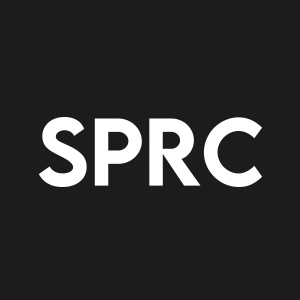SciSparc Announces Ethics Committee Approval to Conduct its Clinical Trial in Autism Spectrum Disorder
SciSparc Ltd. (NASDAQ: SPRC) has received approval from the Soroka University Ethics Committee to conduct a clinical trial for its proprietary drug SCI-210, targeting Autism Spectrum Disorder (ASD). This trial aims to evaluate the safety, tolerability, and efficacy of SCI-210, a combination of cannabidiol and CannAmide™, compared to CBD monotherapy in 60 children over 20 weeks. The approval marks a significant milestone for SciSparc in its pursuit of developing effective treatments for pediatric patients with limited options.
- Approval for clinical trial of SCI-210 for Autism Spectrum Disorder.
- Trial designed to evaluate safety, tolerability, and efficacy.
- Combination treatment may provide effective results with fewer side effects.
- Further approvals from the Israeli Ministry of Health and Medical Cannabis Agency pending.
- No guarantees of success in trial outcomes as per forward-looking statements.
Insights
Analyzing...
The Soroka University Ethics Committee Approval Received to Conduct a Clinical trial with SciSparc’s Proprietary SCI-210 Treatment
TEL AVIV, Israel, June 23, 2022 (GLOBE NEWSWIRE) -- SciSparc Ltd. (NASDAQ: SPRC) ("Company" or "SciSparc"), a specialty clinical-stage pharmaceutical company focusing on the development of therapies to treat disorders of the central nervous system, today announced that it has received approval from the Ethics Committee of The Soroka University Medical Center, in Be'er-Sheva, Israel (the “Ethics Committee”), to conduct the Company’s clinical trial for SCI-210 in patients suffering from Autism Spectrum Disorder ("ASD").
The trial will investigate the effect of the Company’s drug candidate SCI-210, a proprietary combination of cannabidiol (“CBD”) and CannAmide™, versus CBD monotherapy, in treating ASD.
The trial's objectives are to evaluate the safety, tolerability and efficacy of SCI-210 in children with ASD in a designed 20-week, randomized, double-blind, placebo controlled with a cross-over clinical trial of 60 children. The trial has three primary efficacy end points: the Aberrant Behavior Checklist-Community (ABC-C) parent questionnaire; the Clinical Global Impressions-Improvement (CGI-I) performed by a clinician; and the effective therapeutic dose.
“We are honored to receive the Ethics Committee approval, an important step toward initiation of our clinical trial in ASD,” commented Oz Adler, SciSparc's Chief Executive Officer. We believe that our unique and proprietary SCI-210 has the potential to be a new treatment to reduce irritability and other symptoms associated with ASD in pediatric patients, a condition with limited available treatments. Just a month ago we announced the Ethics Committee approval of our novel and proprietary SCI-110 for the treatment of Tourette Syndrome and today with great enthusiasm we announce the Ethic Committee’s approval of our novel and proprietary SCI-210 platform. These approvals are important milestones for SciSparc and they demonstrate our commitment to change the life of millions. Our drug candidates potentially enable us to provide effective and safer treatments with fewer side effects thanks to the lower doses of active ingredients, boosted by the combination with CannAmide™, a mission always desirable but even more so when children are the target population."
ASD is a condition related to brain development that impacts how a person perceives and socializes with others, causing problems in social interaction and communication. The term "spectrum" in autism spectrum disorder refers to the wide range of symptoms and severity.
The launch of the trial is pending further approvals by the Israeli Ministry of Health and the Israeli Medical Cannabis Agency.
About SciSparc Ltd. (NASDAQ: SPRC):
SciSparc Ltd. is a specialty clinical-stage pharmaceutical company led by an experienced team of senior executives and scientists. SciSparc’s focus is on creating and enhancing a portfolio of technologies and assets based on cannabinoid pharmaceuticals. With this focus, the Company is currently engaged in the following drug development programs based on THC and/or non-psychoactive cannabidiol (CBD): SCI-110 for the treatment of Tourette Syndrome, for the treatment of Alzheimer's disease and agitation; SCI-160 for the treatment of pain; and SCI-210 for the treatment of autism spectrum disorder and status epilepticus.
Forward-Looking Statements:
This press release contains forward-looking statements within the meaning of the "safe harbor" provisions of the Private Securities Litigation Reform Act of 1995 and other Federal securities laws. For example, SciSparc is using forward-looking statements when it discusses the initiation of the Company’s clinical trial in ASD and further regulatory approvals in Israel to conduct its ASD research trial with The Soroka University Medical Center. Historic results of scientific research and clinical and preclinical trials do not guarantee that the conclusions of future research or trials will suggest identical or even similar conclusions. Because such statements deal with future events and are based on SciSparc's current expectations, they are subject to various risks and uncertainties and actual results, performance or achievements of SciSparc could differ materially from those described in or implied by the statements in this press release. The forward- looking statements contained or implied in this press release are subject to other risks and uncertainties, including those discussed under the heading "Risk Factors" in SciSparc's Annual Report on Form 20-F filed with the U.S. Securities and Exchange Commission (the “SEC”) on April 28, 2022, and in subsequent filings with the SEC. Except as otherwise required by law, SciSparc disclaims any intention or obligation to update or revise any forward-looking statements, which speak only as of the date they were made, whether as a result of new information, future events or circumstances or otherwise.
Investor Contact:
IR@scisparc.com
Tel: +972-3-6167055








